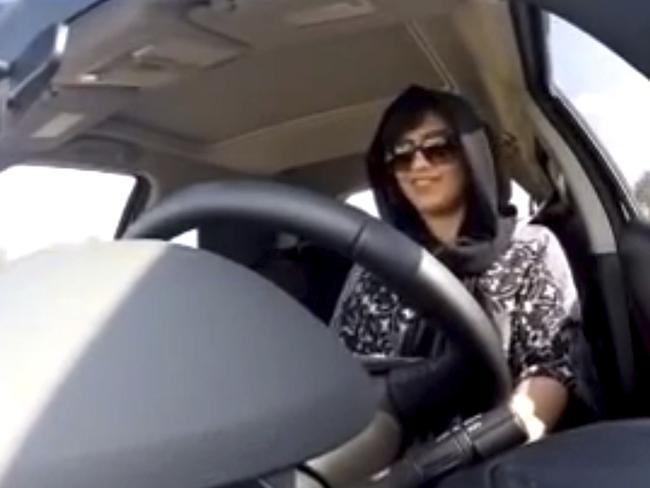Saudi campaigner Loujain al-Hathloul detained despite women’s rights win
Arrest of Loujain al-Hathloul, campaigner for Saudi women’s rights, throws a fresh light on Mohammed bin Salman’s reforms.

For two years Loujain al-Hathloul was the public face of the fight for women’s rights in Saudi Arabia: rights that are at the forefront of the royal family’s social revolution.
Photogenic, witty and bilingual in Arabic and English from a childhood spent between Canada and Riyadh, she fought for the right for women to drive and was one of the first women to stand for elected office in 2015. The driving ban is to be lifted but Ms Hathloul is now in prison and the subject of a campaign of vilification in the state-sanctioned media.

Her fate is believed to be the subject of exchanges between the government and western diplomats. Human rights groups say that she is proof that despite the praise heaped on Crown Prince Mohammed bin Salman no one is safe from his attempts to control his subjects.
“They want to send a message that there is no allowance to challenge the government or talk critically,” a female activist said, speaking anonymously for her own protection.
Ms Hathloul, 28, was one of ten activists, most of them women, arrested this month. Some have been released but those still detained include Aziza al-Yousef, a well-known academic, Eman al-Nafjan, a prominent blogger, and two male supporters, Mohammad al-Rabea, an activist, and Ibrahim al-Modaimeegh, a lawyer.
Ms Hathloul had been arrested before in late 2014, before the crown prince’s rise to power, for driving over the border from Abu Dhabi, where she works. She was only released after King Abdullah died and Britain’s Prince Charles, visiting to pay his condolences, raised her case with King Salman.

This case, however, is different. Photographs of some of the women were put on the front page of serious newspapers and they were called “traitors”, with suggestions that they had been leaking secrets to “foreign entities”. The implication that those entities might include the diplomatic staff of friendly embassies is believed to have caused consternation with ambassadors who had been keen to promote the crown prince’s reforms.
Dana Ahmed, a campaigner for Amnesty International, pointed out that many of the activists had prominent public profiles: “We have never seen this kind of smear campaign before.”
A Saudi official suggested that the real concern was that they had been in contact with “dissidents”.
A campaign against the crown prince is being orchestrated from abroad by his opponents, including minor royalty.

The irony is that the women’s movement have welcomed the crown prince for his social changes, which include not only allowing women to drive but also removing the religious police’s powers of arrest and dropping large parts of the gender segregation laws. The driving ban is to be lifted on June 24 and the women had been warned not to talk to the foreign media or make public appearances, a warning they seem to have heeded.
Some analysts supportive of the crown prince say that the arrests were a mistake. Mohammed Alyahya, a fellow with the Gulf Research Centre, said that he was shocked that the “voices calling for the social change we have been witnessing over the past two years have been silenced”.
He said officials had told him that those arrested had passed on classified information. “If this is true then evidence must be made public,” he said. “These individuals have been known for nothing but their social activism for years. The massive social and economic changes in Saudi will be markedly tainted in the absence of not only economic transparency but also legal clarity.”
The Times


